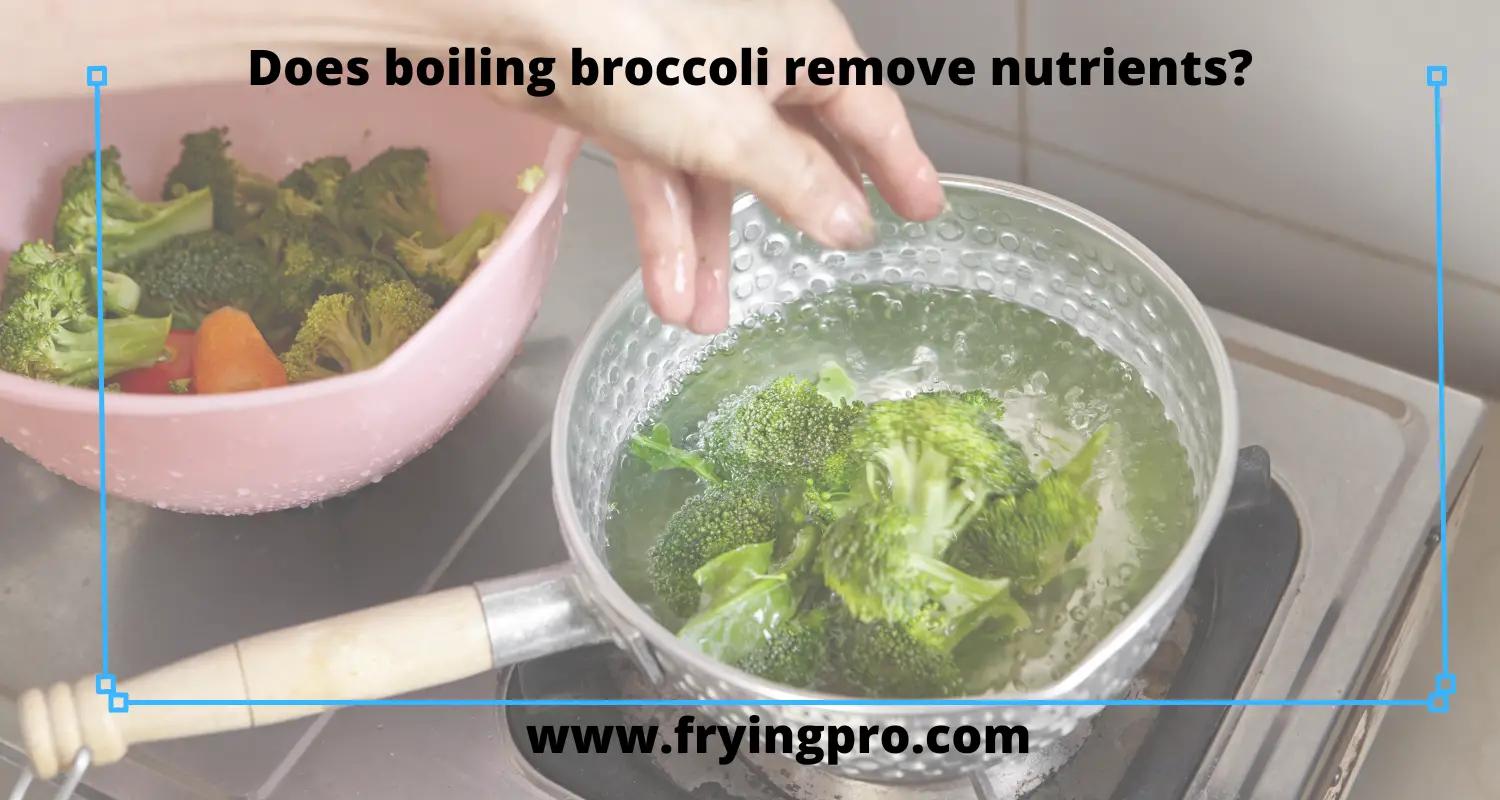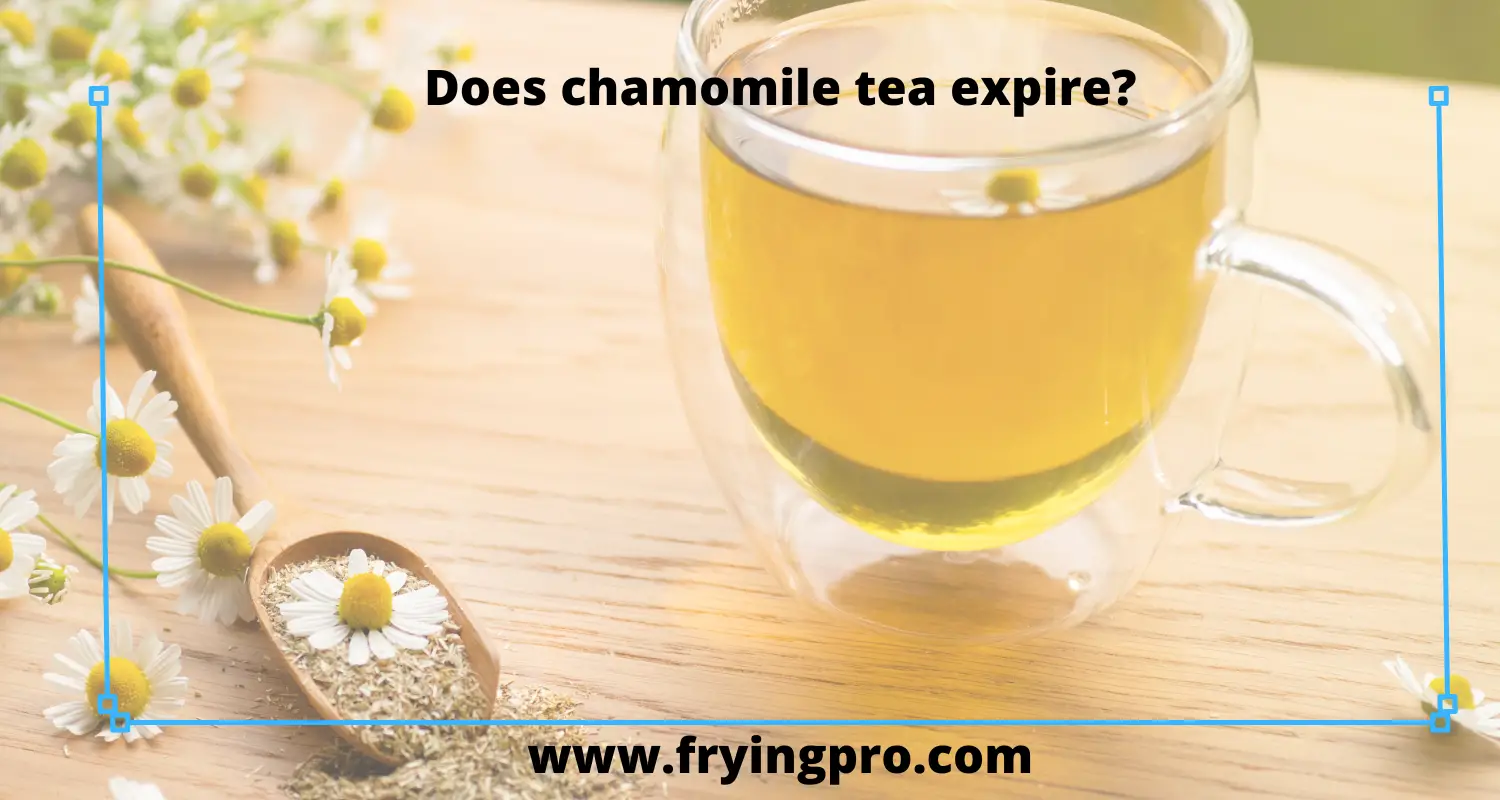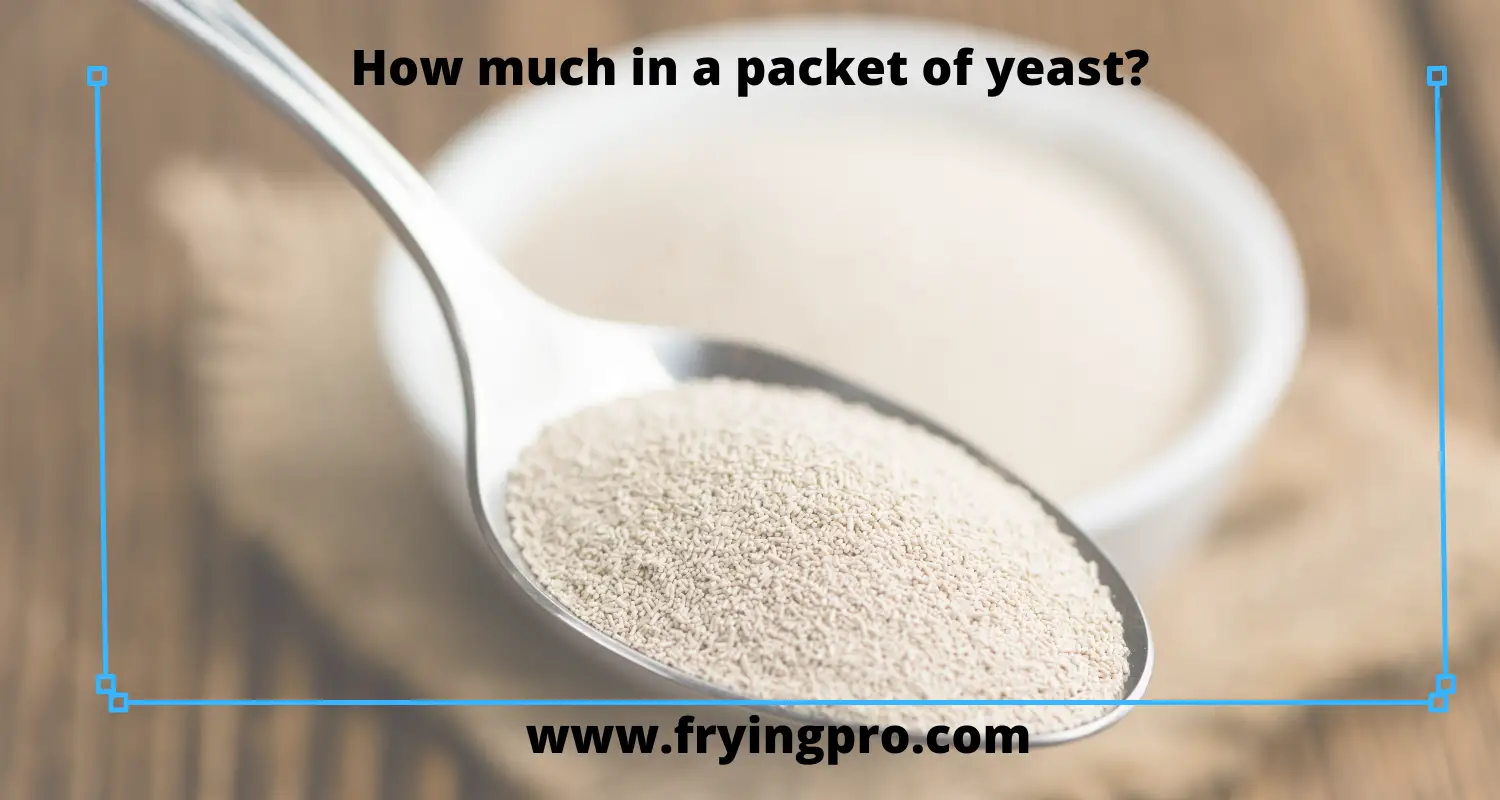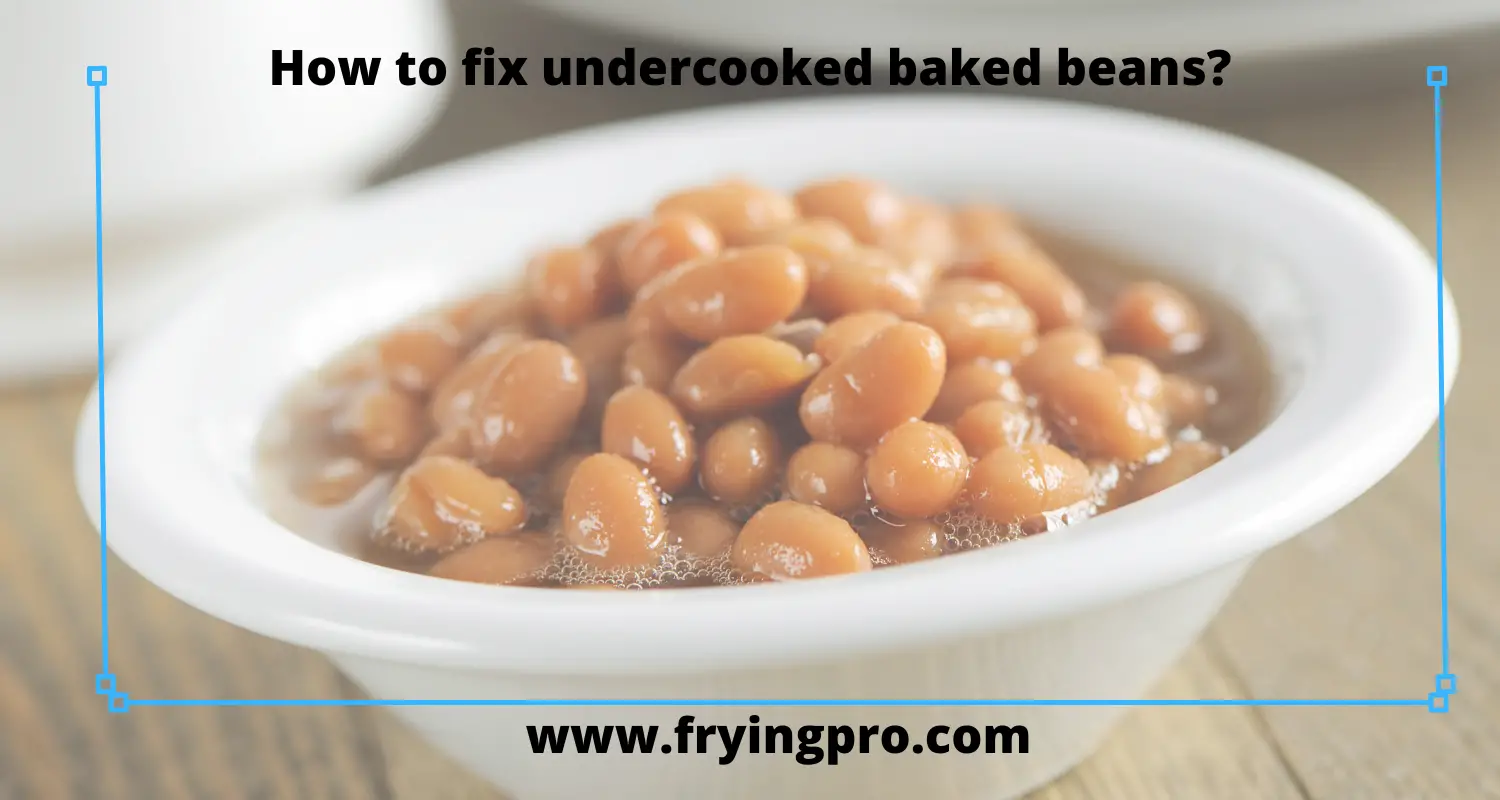It’s a common kitchen myth that boiling broccoli removes its nutrients. People think the nutrients must be leaching out into the water because they’re boiling. But is this true? Does boiling broccoli remove nutrients?
In this post, I’ll answer this question based on the latest scientific evidence and my personal experience of cooking. Keep reading!
Does boiling broccoli remove nutrients?
Boiling, steaming, microwaving, and stir-frying Broccoli significantly reduces nutrients such as vitamin C, soluble sugars, total soluble proteins, glucosinolates, and chlorophyll. According to research conducted at Zhejiang University, steaming is the best cooking method that retains the maximum nutrients in broccoli.
| Nutrient | Raw | Boiled |
| Chlorophyll mg/g FW | 0.55 | 0.39 |
| Total Soluble protein mg/g FW | 4.9 | 1.1 |
| Total soluble sugar mg/g FW | 4 | 2 |
| Vitamin C mg/100 g FW | 105 | 70 |
| Total carotenoid content mg/100 g FW | 12 | 10 |
How do you cook broccoli without losing nutrients?
It’s a common question: how do you cook broccoli without losing nutrients? The answer is simple: using the proper cooking method can make broccoli more nutritious.
Here’s how it works: when you cook broccoli, the heat breaks down the plant’s cells and releases nutrients like vitamins A and C. But if you overcook it, those same nutrients can be destroyed.
So what’s the best way to cook broccoli? Experts say steaming is the best option because it doesn’t require added fat or oil and helps preserve broccoli’s delicate nutrient balance. Plus, it’s quick and easy.
Here’s a quick steaming guide: just put a few inches of water in a pot, bring it to a boil, then add your broccoli florets and cover the pot. Steam for about 3 minutes until the florets are bright green and tender-crisp.
What nutrients are lost when steaming broccoli?
When broccoli is steamed, the nutrients in the raw vegetable are lost. Water-soluble vitamins, such as C and B, are particularly susceptible to lose during cooking. In addition, minerals such as potassium and magnesium can be leached out into the cooking water.
While some nutrient loss is inevitable when cooking broccoli, there are ways to minimize it. For instance, using minimal water when steaming can help reduce the number of lost vitamins and minerals. Additionally, steaming for a shorter period can help preserve some nutrients.
While steaming broccoli will result in some nutrient loss, it is still a healthier cooking method than other methods, such as boiling or frying. Steamed broccoli still contains many vital nutrients that can contribute to a healthy diet.
Does boiling broccoli lose protein?
When it comes to boiling broccoli, there is some debate as to whether or not this cooking method causes the vegetable to lose protein. While boiling does cause some nutrients to leach out of foods, it is essential to note that broccoli is still a very healthy option when cooked in this manner.
According to research published in the Journal of Zhejiang University Science B, all cooking methods except steaming reduce the total soluble proteins in Broccoli. The research further suggests that boiling may also affect Broccoli’s total aliphatic and indole glucosinolates.
What is the healthiest way to eat broccoli?
There are many ways to cook broccoli, but which method is the healthiest? Steaming broccoli has been found to preserve the most nutrients.
A study by the National Institute of Health found that steamed broccoli retained more vitamins and minerals than other cooking methods, such as boiling or microwaving.
The nutrients in broccoli are essential for our health. Broccoli is a good source of fiber, vitamin C, potassium, and folate. It also contains phytochemicals, which are plant compounds that have health benefits.
One type of phytochemical found in broccoli is sulforaphane. This compound has been shown to protect against cancer and heart disease.
So, if you want the most benefit from broccoli, steam it instead of boiling or microwaving, cooking, or boiling it.
Is overcooked broccoli still healthy?
Yes, overcooked broccoli is still healthy. The primary nutrient in broccoli is Vitamin C, which is not destroyed by heat. Cooking broccoli makes the vitamin more available to our bodies. Studies have shown that overcooked broccoli has more antioxidants than raw or lightly cooked ones.
So, if you want the most nutritional bang for your buck, don’t be afraid to cook your broccoli until it’s soft. And, as a bonus, overcooked broccoli is easier to digest than raw or lightly cooked broccoli.
What happens if you eat broccoli every day?
If you’re looking for an excuse to eat more broccoli, here it is: according to research, eating broccoli every day may improve your health in various ways. For example, broccoli contains vitamins and minerals that can boost your immune system, help lower cholesterol levels, and protect against cancer.
But how exactly does broccoli do all of this? Let’s take a closer look at the science behind this superfood.
Broccoli contains vitamins A, C, E, fiber, and antioxidants. These nutrients work together to keep your immune system strong and fight off infection. For example, vitamin C helps white blood cells function properly, while fiber helps remove toxins from the body.
In addition to boosting your immune system, the antioxidants in broccoli can also help protect against cancer.
Conclusion
In short, boiling significantly reduces nutrients such as vitamin C, soluble sugars, total soluble proteins, glucosinolates, and chlorophyll. Steaming is the best cooking method that retains the maximum nutrients in broccoli. Happy cooking!
References
Innovative Cooking Techniques for Improving the Overall Quality of a Kailan-Hybrid Broccoli






